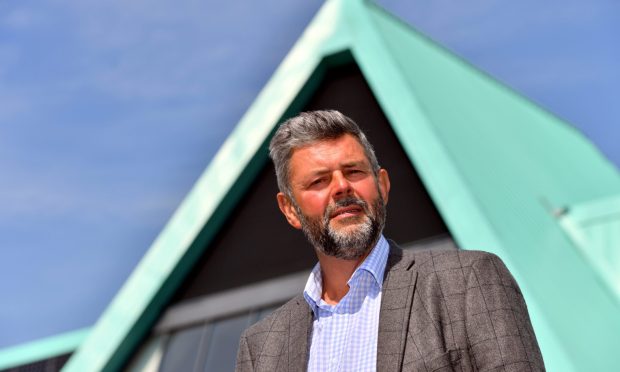
Reform’s surge in regions such as Aberdeenshire means the party is primed to send MSPs to Holyrood, sparking alarm for the SNP and Tories. Local businessman Conrad Ritchie mopped up more than a quarter of the vote in a recent Fraserburgh byelection. That came after in October, and a Westminster election candidate secured nearly 15% at the first time of asking.
Can Reform’s sudden rise be sustained until 2026, or is it bound to fade? How well can Reform do in the north-east? One poll suggested at the next Scottish Parliament election, including a potential two from the north-east region stretching from Fraserburgh to Dundee. The findings of that poll, from Norstat, would put Reform on more seats than the Greens or the Lib Dems in Holyrood. Mr Ritchie, keen on standing after his , believes Reform can push for a third MSP in the north-east alone.
“It’s entirely possible,” he said. “We’ve effectively come from nothing and built a solid foundation.” He says Reform entering parliament would be a huge “turning point” for Scottish politics.
Former nurse and midwife Jo Hart at the Westminster election. That result appears to have cost ex-Scottish Tory leader Douglas Ross his gamble in the constituency, losing former support and watching the SNP pull ahead. “In the north-east, our trajectory is looking good,” she said.
Ms Hart chairs three north-east branches and says local party meetings are “gaining momentum”. Why are voters turning to Reform? Reform insiders say anger over fishing, farming, and energy policies is driving voters away from mainstream parties. “A lot of people are saying enough is enough,” Ms Hart told us.
“There’s a sense people are losing their communities and livelihoods.” “Net-zero is big,” Mr Ritchie said, referencing the drive away from oil and gas to renewables. Mr Farage positions himself as an anti-establishment outsider despite being a wealthy ex-City of London trader.
And north-east Reform sources say the party is benefiting from disillusioned voters. “People are fed up with mainstream parties,” Mr Ritchie says. He points to the fact turnout was just 27% when he stood in Fraserburgh.
Who is voting for Reform? Reform’s rise in Scotland surprised many because Mr Farage had struggled to make headway in Scotland. Ms Hart reckons around half her support in July’s election came from disaffected Tories. Many were angered when Mr Ross controversially stepped in to replace ill colleague David Duguid as the candidate.
“I don’t think the Tories did themselves any favours,” she said. North East Conservative Maurice Golden, up for re-election in 2026, previously admitted . A Tory spokesperson pointed to four north-east byelection successes this month as evidence the party’s vote is holding up regionally.
But it’s not just frustrated Tories turning to Reform. “It’s right across the spectrum in the north-east,” Mr Ritchie said. “We’re taking support from Labour and the SNP.
” Mr Ritchie said some nationalists are frustrated with “woke” SNP social policies, such as the party’s botched gender law reforms. Can Reform avoid shooting itself in the foot? Mr Farage is never far from controversy. His party is often branded far-right due to his rhetoric against migrants.
And his candidates came in for intense scrutiny at the general election. One Aberdeenshire hopeful was ditched over . But north-east sources deny accusations the party is on the extreme right.
“We’re right of centre,” Mr Ritchie said. “We are definitely not racist.” “We have a big problem with illegal migration, not legal immigration.
”.














